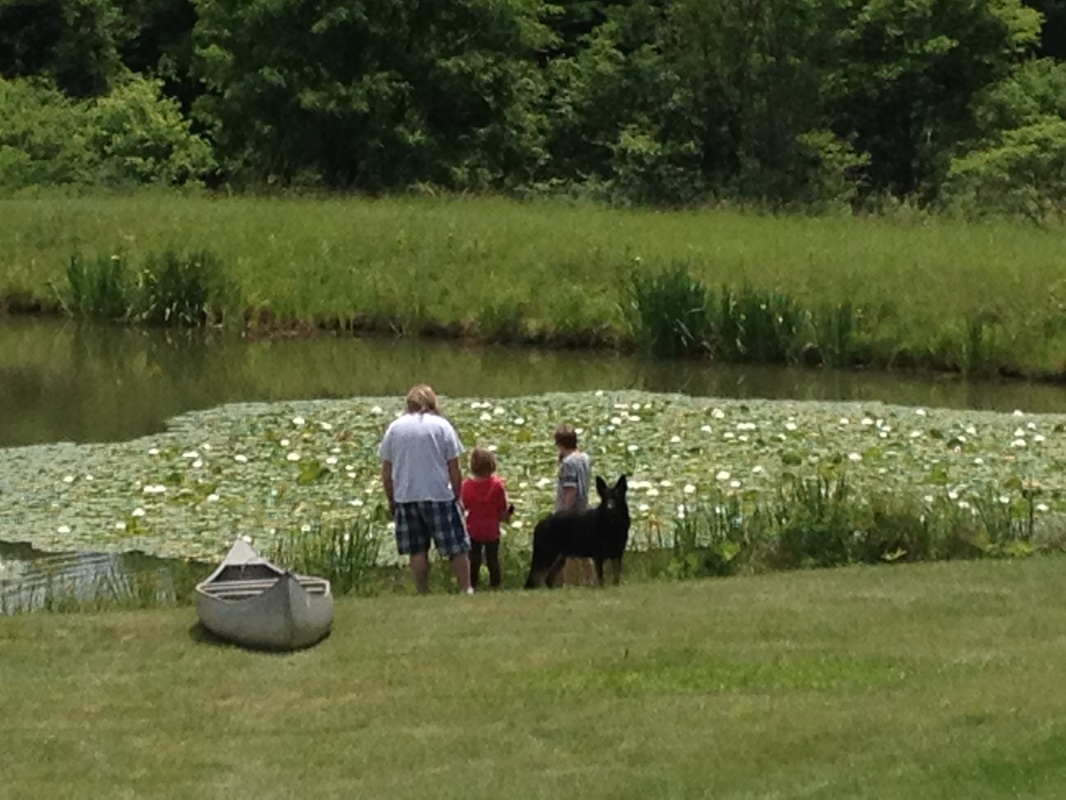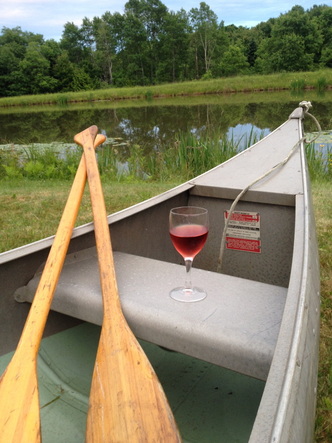|
Recently I had a fun weekend, camping at a friend's remote place in NY--pottery studio, pond with water lilies and Koi, free range dogs and chickens, canoe, strawberry wine, s'mores. . . You get the picture. I brought my kids, and my bestie brought her adult son to meet her new sweetie who's a potter (it was his place). The kids and I hadn't seen her son, Jamie, since Christmas, so we were all excited. After I set up camp, my son wandered over. Gloria was still making stuff with clay and the others, but Gabe was ready to canoe. We don't get a lot of time just the two of us, and being on the pond with him, showing him how to hold the paddle, maneuvering around (and through) the water lilies, and seeing how fast we could go was wonderful. I like that he learns some of this stuff from his mother. That he will not grow up thinking women hate the outdoors or can't handle themselves there or are no fun to be with outdoors.
But I realized I take our outdoor activities for granted. My friend's son, Jamie, lives with a serious, painful back injury that's classified as a disability. He does not complain, but it affects every moment. He wanted to take the canoe out, and my daughter wanted to go with him. It's a small pond, she's a strong swimmer. What's the worst that can happen? They get wet--so what? Ok, the worst that could happen is the attempt is so frustrating it crushes his spirit and makes him feel like he can't do anything. This is called perceived risk, where the risk is emotional or social, and as an outdoor instructor I consider this as important as physical risk. But I believe in experiential education and this was his idea, so we encouraged them to go. He did not ask for help, so his mother and I offered none. We watched from the house as they pulled the canoe to the edge (there was no beach or landing), my daughter got in at the front, and with a lot of shoving and scooching they got the canoe in without getting wet. Then they snaked around the pond, Jamie doing all of the paddling. When done, they even climbed out onto the high bank without tipping over. We whooped from the house where we raised our wine glasses to his success, as Jamie pulled the canoe onto the grass. That night he kept talking about the experience. That half hour empowered him, brought him back to the person he'd been who loved camping. He felt like he regained some of his independence and couldn't wait to report to his aide and doctors. There are so many benefits to outdoor recreation, and most have nothing to do with how "extreme" the activity is. It's us existing in the world without electronics or motors. And to me, remembering that I am an animal is the biggest benefit of all. Here's to you, Jamie. You're such an animal.
3 Comments
|
LilaceI write, read, recreate, and raise kids in rural Pennsylvania. I teach part-time in Outdoor Recreation Leadership, Creative Writing, and Women's Studies at Mansfield University. Archives
April 2020
Categories
All
|


 RSS Feed
RSS Feed
